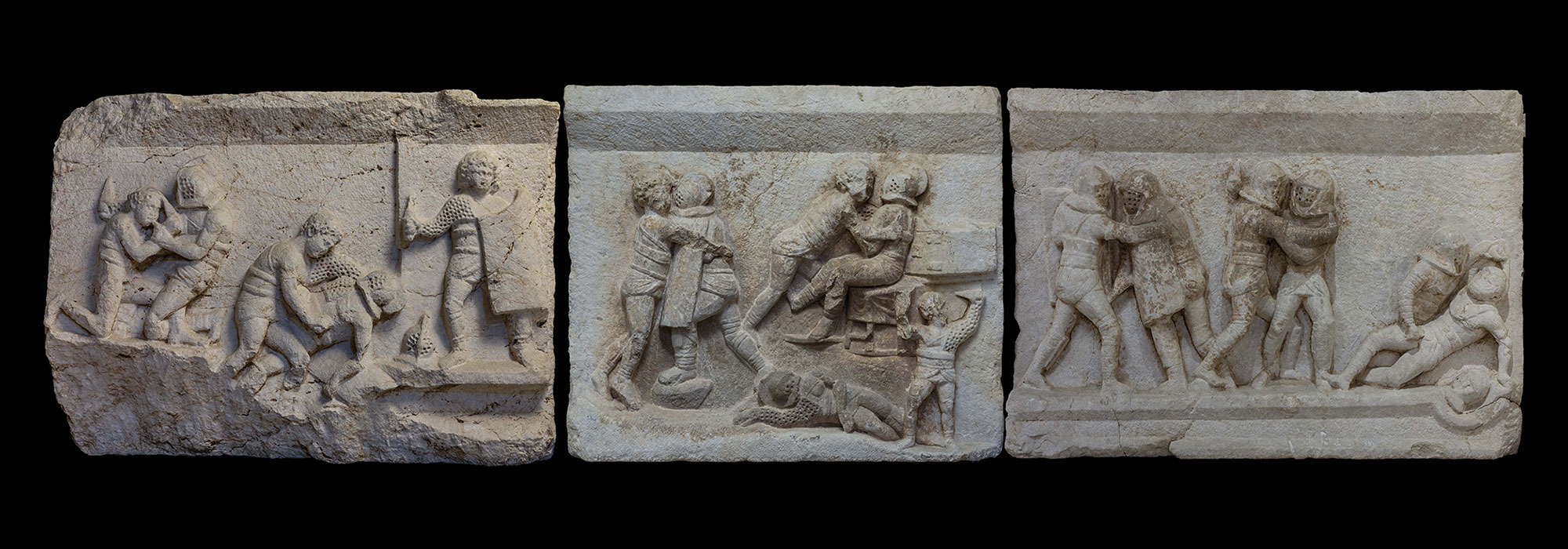LEICESTER, ENGLAND—The Guardian reports that a narrow shaft containing the remains of more than 100 people was discovered near Leicester Cathedral, in an area where a new heritage learning center will be constructed. The burials are thought to date to the early twelfth century, during a period of illness and hunger described in the Anglo-Saxon Chronicles. No buckles or brooches were found among the remains, and the position of their limbs suggests that they had been wrapped in shrouds. “Their bones show no signs of violence, which leaves us with two alternative reasons for these deaths: starvation or pestilence,” said Mathew Morris of Leicester University. It appears as though the bodies were dropped into the shaft by the cartload in three deposits over a short period of time, he added. “We have no idea, at present, what might have triggered such a massive cause of death. As far as we know, the bubonic plague did not reach our shores until 1348. So, what was the cause of the mass deaths that occurred then?” he asked. To read about analysis of the skeleton of Richard III, which was reburied in Leicester Cathedral in 2015, go to "The King Is Dead. Long Live the King."
Medieval Burial Pit Exhumed Near Leicester Cathedral
News November 20, 2024
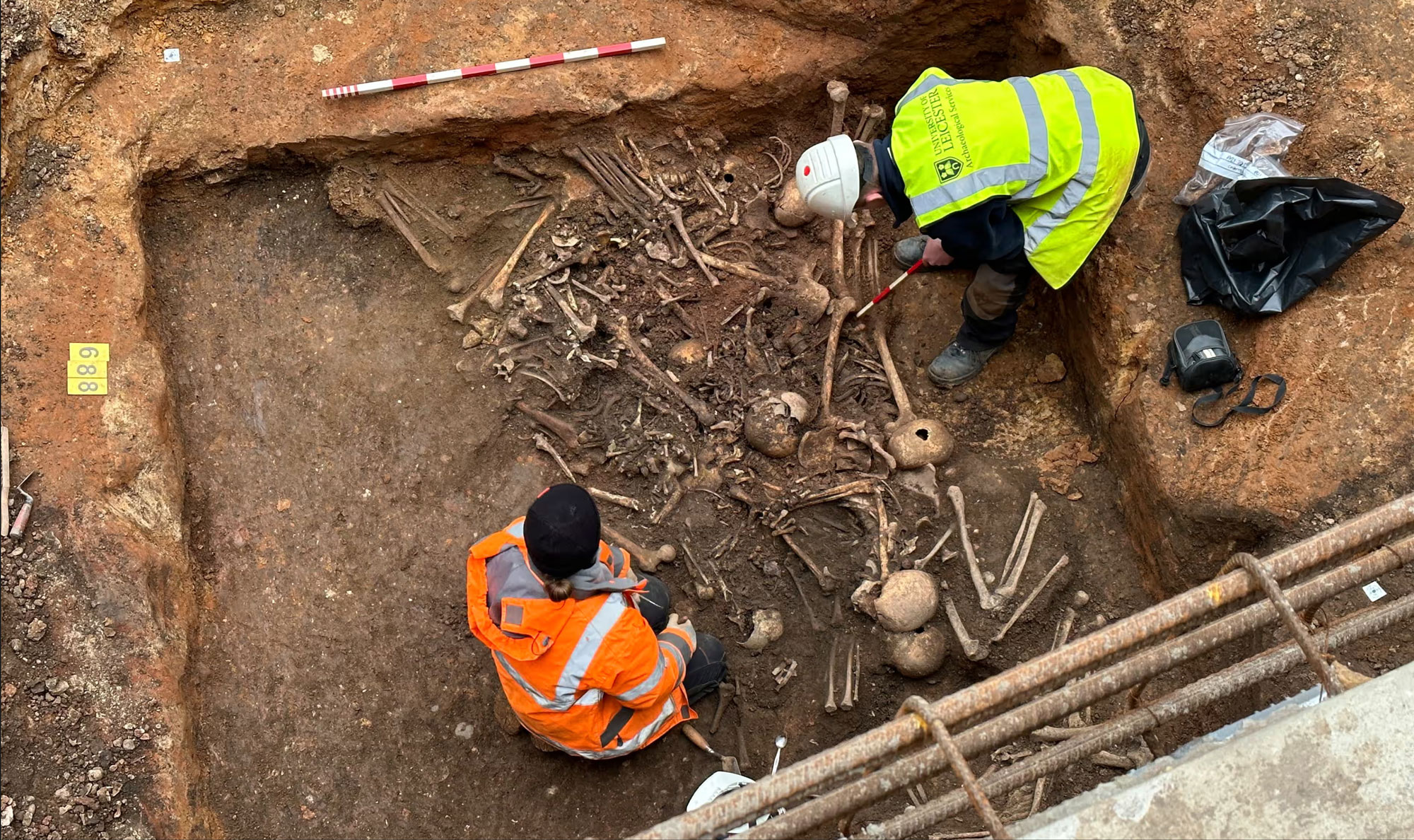
Recommended Articles
Features January/February 2025
Medieval England’s Coveted Cargo
Archaeologists dive on a ship laden with marble bound for the kingdom’s grandest cathedrals
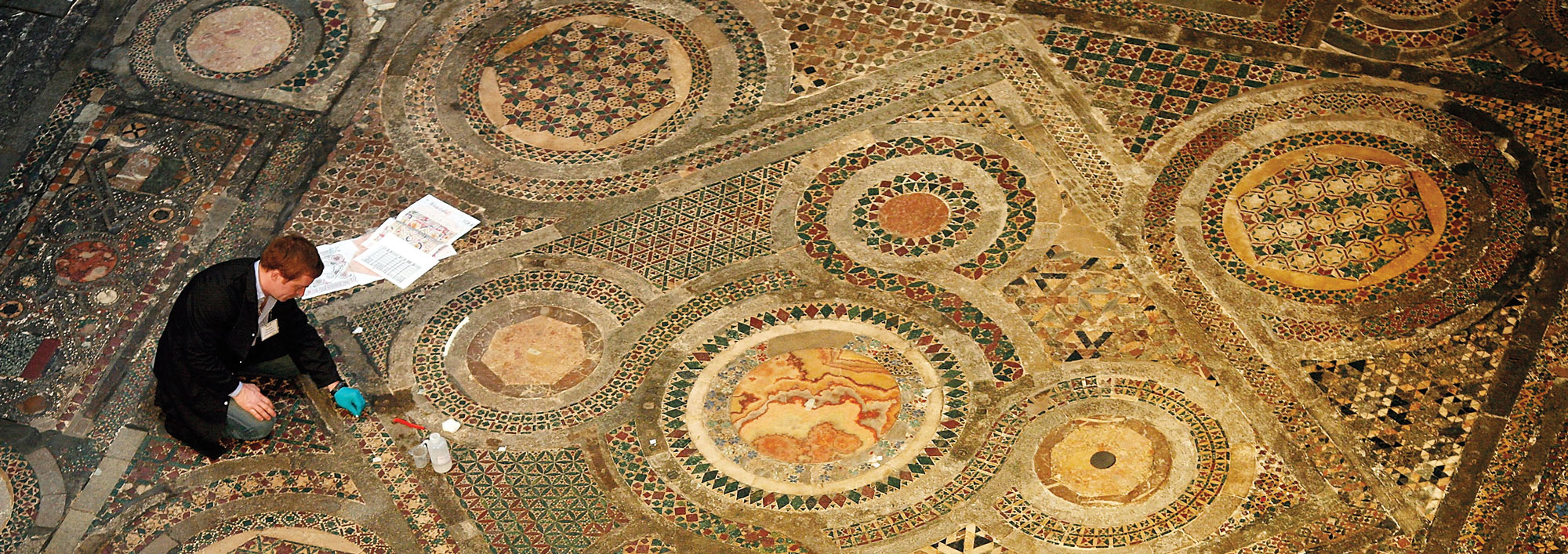
Digs & Discoveries November/December 2021
The Age of Glass

Digs & Discoveries July/August 2021
Laws of the Land
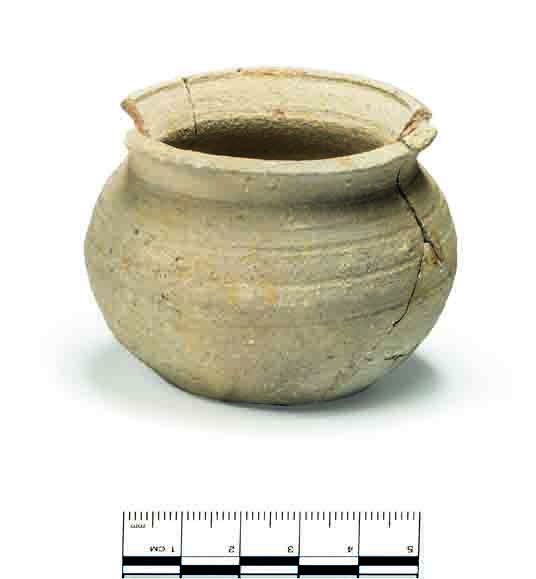
Digs & Discoveries March/April 2021
An Enduring Design
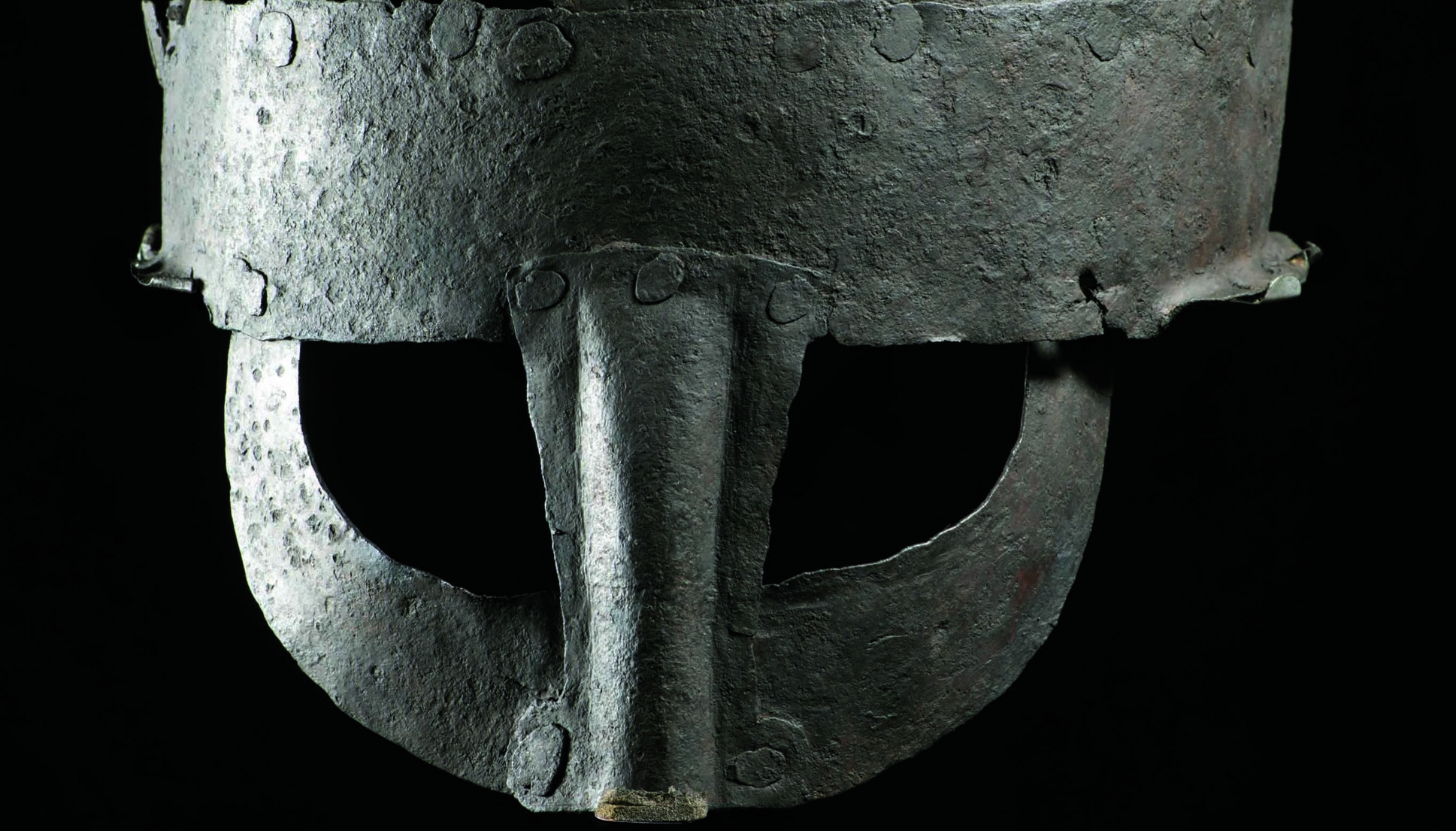
-
Features November/December 2024
The Many Faces of the Kingdom of Shu
Thousands of fantastical bronzes are beginning to reveal the secrets of a legendary Chinese dynasty
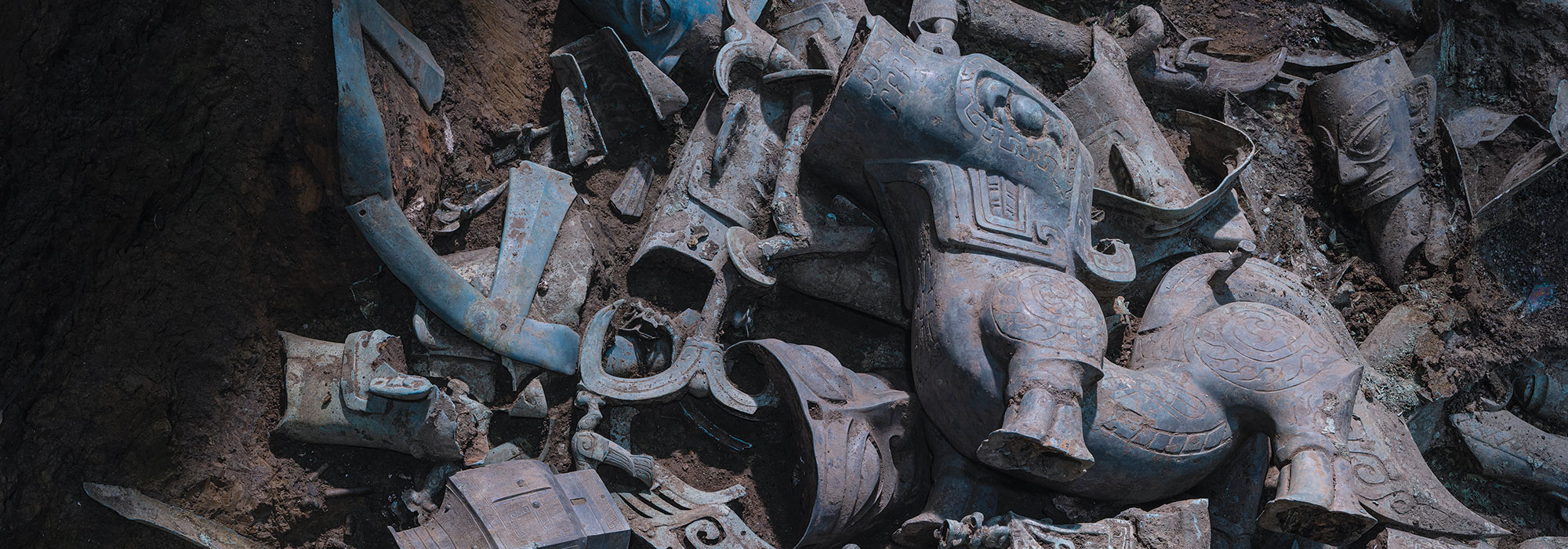 Courtesy Sichuan Provincial Institute of Cultural Relics and Archaeology
Courtesy Sichuan Provincial Institute of Cultural Relics and Archaeology -
Features November/December 2024
Europe’s Lost Bronze Age Civilization
Archaeologists have discovered more than 100 previously unknown megasites north of the Danube
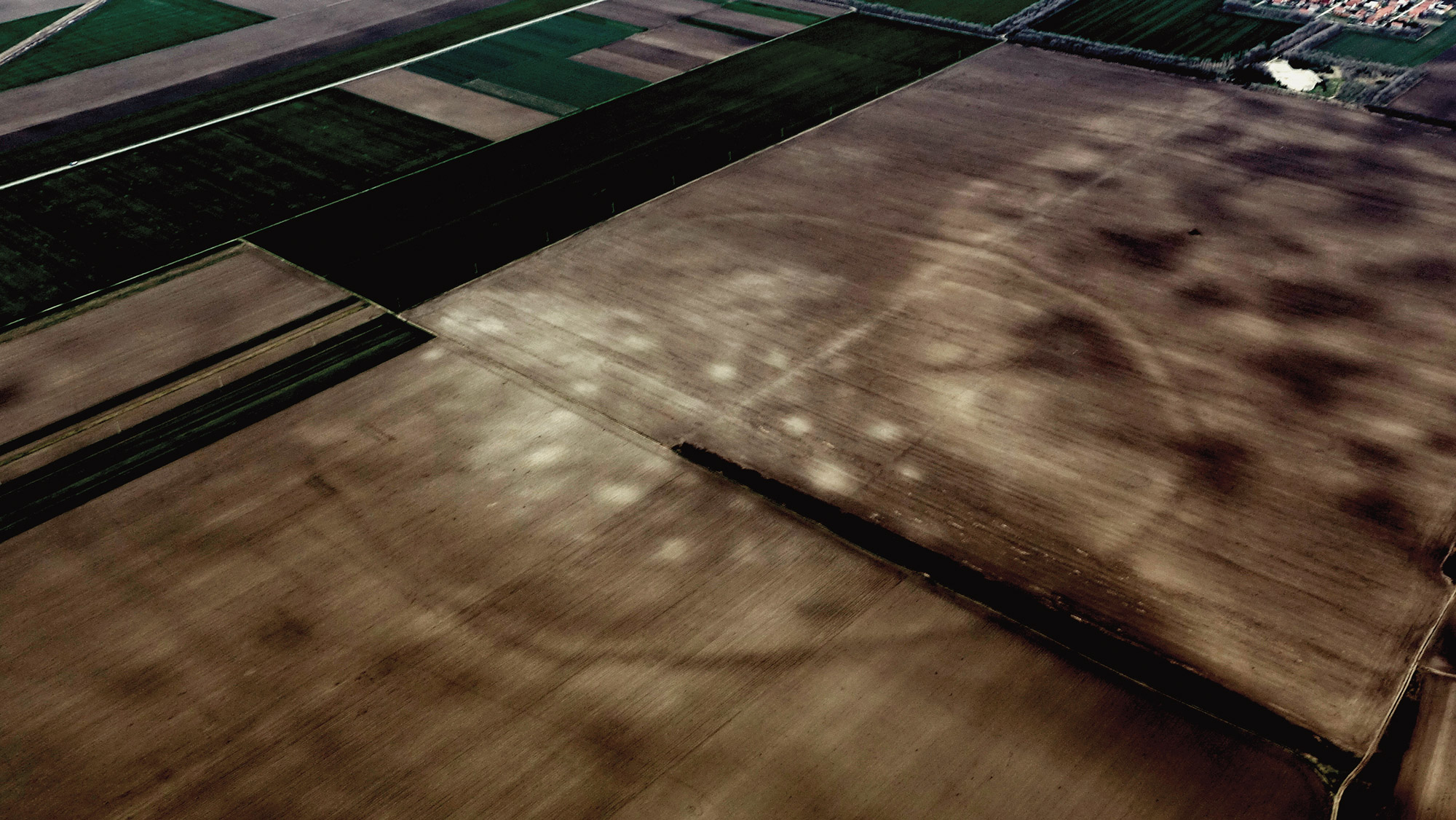 Courtesy Barry Molloy
Courtesy Barry Molloy -
Features November/December 2024
Chalice of Souls
A Maya jade heirloom embodies an enduring sacred tradition
 Jon G. Fuller, Jr./Alamy
Jon G. Fuller, Jr./Alamy -
Features November/December 2024
Exploring Ancient Persia’s Royal Fire Temple
At a remote lake in the mountains of Iran, archaeologists have identified the most revered Zoroastrian sanctuary
 Bridgeman Images
Bridgeman Images


